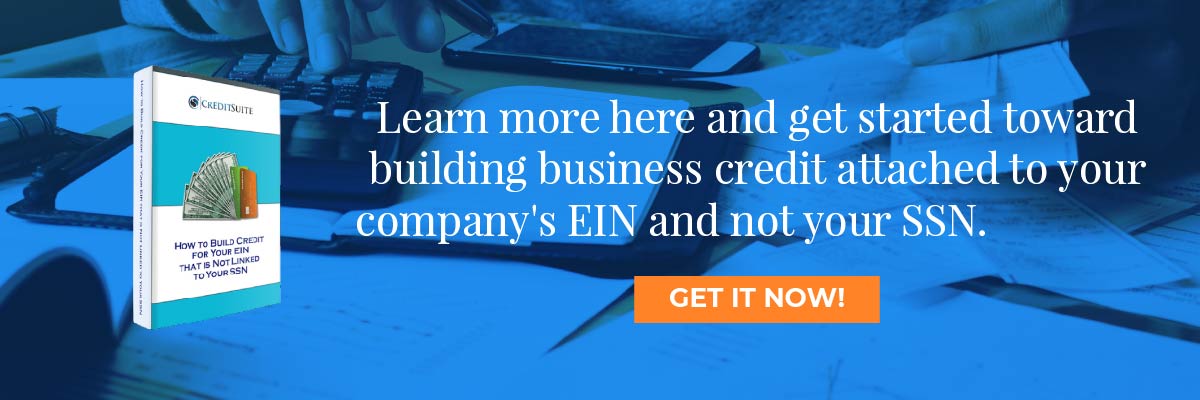- Connect With Us!
- (877) 600-2487
- info@creditsuite.com
How to Set Up a New Business in Louisiana
Published By Janet Gershen-Siegel at April 16th, 2019
Starting a Business in Louisiana
A new business in Louisiana is not out of reach. So have you been wondering: just how do I start a business in Louisiana? And more importantly, can I do so no matter what the economic conditions are? Can I start a new business in Louisiana during a recession?
A New Business in Louisiana: Pros and Cons
Business Insider in a 2016 article puts Louisiana in its middle ten when it comes to starting a new business. And this is for the whole country. Many people have turned to starting businesses.
There are also a lot of potential employees available to work. But those potential employees’ educational levels tend to be low. Plus the state’s corporate income tax is in five brackets.
Louisiana also has a burdensome sales tax. It is on vital business components like leases and utilities.
Huge Recent Turnaround
In 2019, Dollar Sprout calculated Louisiana to the number three state for starting a new business. Keep in mind, their methodology differs from Business Insider’s.
Dollar Sprout noted the biggest draws are lower labor costs and a tighter labor market. A somewhat modest cost of living and a steady growth rate were also favorable factors. However, sweltering summers could be a turnoff to out of state employees looking to relocate.
A New Business in Louisiana: DBAs
In Louisiana, business owners and business partners can operate under a fictitious name filing, also known as “Doing Business As” or a DBA. Using such a fictitious name filing, an employer can name the business. And they can operate it under a name different from the owner’s full legal name, the names of business partners, or the name under which the business is officially registered. It is not necessary for a sole proprietor to register a DBA with the state.
Start a New Business in Louisiana – Louisiana Top Industries
According to Louisiana Economic Development, the top industries in Louisiana are agribusiness, advanced manufacturing, and aerospace. More top Louisiana industries are energy, entertainment, and software development. Still more Louisiana top industries are automotive, water management, and process industries. Plus Louisiana – New Orleans in particular – has a great deal of tourism.
Smart business owners can find new opportunities and take advantage of the bigger industries in the area by offering goods or services such as catering, transportation, and hospitality. Other options are trucking for any industry. Still more business ideas are to do data and other types of computer work. There is also even potentially operating taverns and larger concert venues.
Here is exactly how to start a new business in Louisiana.
Louisiana New Business Secretary of State Requirements
Register a Business Name
Louisiana business owners can register their new business name on the Louisiana Secretary of State’s website.
Louisiana Corporations
A Louisiana corporation must have a unique corporate name. Before a business owner can file to incorporate, they will need to be sure that the name they want is not already in use.
By searching online records and other databases, they can find out if the name they want is already in use by another corporation. Search a database of Louisiana corporations online at the official website of the Secretary of State: Louisiana Corporation.
If a business owner would like to reserve the corporate name they want until the time that they can file to incorporate, they can submit an application to the Louisiana Secretary of State. Find the application online at Reserve Louisiana Corporate Name. The filing fee is $25.00 and then the name will be reserved for a period of 60 days.
Business Permits and Licenses
Professional and occupational licenses are on the Louisiana government official webpage. Also use the state one stop website, geauxBIZ.
Local Permits and Licenses
Check with your local municipality, city or county office or website. See if there may be any local licensing or permit requirements.
For example, in Shreveport, you will need to go to the Business Startup page on the Shreveport city website.
Start a New Business in Louisiana – Business Registration
Register a business at the Louisiana Secretary of State.
Tax Registration
Information is at the Louisiana Department of Revenue. But complete the registration at geauxBIZ.
Start a New Business in Louisiana – Virtual Offices
Alliance offers Louisiana virtual business office addresses in Baton Rouge and New Orleans. For Shreveport virtual business office listings, try Regus.
For other areas of the state, ask local business owners. Or they can ask computer user groups to find help in this area. Other choices for virtual business office addresses could be in nearby states. These are Arkansas, Mississippi, and Texas.
Start a New Business in Louisiana – Build Business Credit
Small business credit is credit in a business’s name. It doesn’t link to an entrepreneur’s individual credit, not even if the owner is a sole proprietor and the only employee of the small business.
Because of this, a business owner’s business and individual credit scores can be very different.
The Benefits
Since business credit is separate from personal, it helps to secure an entrepreneur’s personal assets, in the event of legal action or business insolvency.
Also, with two distinct credit scores, a business owner can get two different cards from the same vendor. This effectively doubles buying power.
Another benefit is that even startups can do this. Going to a bank for a business loan can be a formula for frustration. But building business credit, when done right, is a plan for success.
Individual credit scores are dependent on payments but also other considerations like credit use percentages.
But for business credit, the scores actually merely hinge on if a business pays its debts timely.
Learn more here and get started toward building business credit attached to your company’s EIN and not your SSN.
The Process
Establishing company credit is a process, and it does not happen automatically. A business will need to proactively work to develop company credit.
Nonetheless, it can be done readily and quickly, and it is much more rapid than building consumer credit scores.
Merchants are a big aspect of this process.
Accomplishing the steps out of sequence will result in repetitive denials. No one can start at the top with business credit. For example, you can’t start with retail or cash credit from your bank. If you do, you’ll get a denial 100% of the time.
Start a New Business in Louisiana – Small Business Fundability
A small business has to be fundable to lending institutions and merchants.
That is why, a company will need a professional-looking website and email address. And it needs to have website hosting from a supplier like GoDaddy.
And also, company telephone and fax numbers must have a listing on ListYourself.net.
Also, the business telephone number should be toll-free (800 exchange or similar).
A small business will also need a bank account dedicated strictly to it, and it needs to have every one of the licenses necessary for operating.
Learn more here and get started toward building business credit attached to your company’s EIN and not your SSN.
Dealing with the IRS
Visit the Internal Revenue Service web site and acquire an EIN for the business. They’re totally free. Choose a business entity like corporation, LLC, etc.
A small business can get started as a sole proprietor. But they will probably want to switch to a type of corporation or an LLC.
This is in order to lessen risk. And it will take full advantage of tax benefits.
A business entity will matter when it pertains to tax obligations and liability in the event of a lawsuit. A sole proprietorship means the business owner is it when it comes to liability and tax obligations. No one else is responsible.
Sole Proprietors Take Note
If you run a company as a sole proprietor, then at least be sure to file for a DBA. This is ‘doing business as’ status.
If you do not, then your personal name is the same as the business name. Therefore, you can find yourself being directly liable for all business financial obligations.
Plus, according to the Internal Revenue Service, using this structure there is a 1 in 7 probability of an IRS audit. There is a 1 in 50 chance for corporations! Prevent confusion and considerably decrease the chances of an IRS audit as well.
Beginning the Business Credit Reporting Process
Begin at the D&B web site and get a cost-free D-U-N-S number. A D-U-N-S number is how D&B gets a company in their system, to generate a PAYDEX score. If there is no D-U-N-S number, then there is no record and no PAYDEX score.
Once in D&B’s system, search Equifax and Experian’s web sites for the business. You can do this at fastcs.wpengine.com/reports. If there is a record with them, check it for correctness and completeness. If there are no records with them, go to the next step in the process.
By doing this, Experian and Equifax will have something to report on.
Vendor Credit Tier
First, you ought to build trade lines that report. This is also called the vendor credit tier. Then you’ll have an established credit profile, and you’ll get a business credit score.
And with an established business credit profile and score you can start to get credit in the retail and cash credit tiers.
These types of accounts tend to be for the things bought all the time, like marketing materials, shipping boxes, outdoor work wear, ink and toner, and office furniture.
But first of all, what is trade credit? These trade lines are credit issuers who will give you initial credit when you have none now. Terms are often Net 30, instead of revolving.
Hence, if you get approval for $1,000 in vendor credit and use all of it, you must pay that money back in a set term, like within 30 days on a Net 30 account.
Details
Net 30 accounts have to be paid in full within 30 days. 60 accounts have to be paid completely within 60 days. In contrast to with revolving accounts, you have a set time when you have to pay back what you borrowed or the credit you used.
To begin your business credit profile properly, you ought to get approval for vendor accounts that report to the business credit reporting agencies. Once that’s done, you can then make use of the credit.
Then repay what you used, and the account is on report to Dun & Bradstreet, Experian, or Equifax.
Vendor Credit Tier – It Helps
Not every vendor can help in the same way true starter credit can. These are merchants that will grant an approval with marginal effort. You also want them to be reporting to one or more of the big three CRAs: Dun & Bradstreet, Equifax, and Experian.
You want 5 to 8 of these to move onto the next step, which is the retail credit tier. But you may have to apply more than one time to these vendors. So, this is to prove you are reliable and will pay punctually.
Retail Credit Tier
Once there are 5 to 8 or more vendor trade accounts reporting to at least one of the CRAs, then progress to the retail credit tier. These are companies which include Office Depot and Staples.
Just use your SSN and date of birth on these applications for verification purposes. For credit checks and guarantees, use the small business’s EIN on these credit applications.
One example is Lowe’s. They report to D&B, Equifax and Business Experian. They want to see a D-U-N-S and a PAYDEX score of 78 or higher.
Fleet Credit Tier
Are there 8 to 10 accounts reporting? Then move to the fleet credit tier. These are companies such as BP and Conoco. Use this credit to buy fuel, and to repair, and maintain vehicles. Just use your SSN and date of birth on these applications for verification purposes. For credit checks and guarantees, make certain to apply using the company’s EIN.
One such example is Shell. They report to D&B and Business Experian. They need to see a PAYDEX Score of 78 or better and a 411 small business phone listing.
Shell may say they want a certain amount of time in business or revenue. But if you already have enough vendor accounts, that won’t be necessary. And you can still get approval.
Learn more here and get started toward building business credit attached to your company’s EIN and not your SSN.
Cash Credit Tier
Have you been responsibly handling the credit you’ve gotten up to this point? Then move to the cash credit tier. These are businesses such as Visa and MasterCard. Only use your Social Security Number and date of birth on these applications for verification purposes. For credit checks and guarantees, use your EIN instead.
One example is the Fuelman MasterCard. They report to D&B and Equifax Business. They want to see a PAYDEX Score of 78 or better. And they also want you to have 10 trade lines reporting on your D&B report.
Plus, they want to see a $10,000 high credit limit reporting on your D&B report (other account reporting).
Also, they want you to have an established small business.
These are businesses like Walmart and Dell, and also Home Depot, BP, and Racetrac. These are normally MasterCard credit cards. If you have 14 trade accounts reporting, then these are feasible.
Start a New Business in Louisiana – Monitor Your Business Credit
Know what is happening with your credit. Make certain it is being reported and fix any mistakes ASAP. Get in the practice of checking credit reports and digging into the particulars, and not just the scores.
We can help you monitor business credit at Experian and D&B for 90% less than it would cost you at the CRAs. See: fastcs.wpengine.com/monitoring.
Update Your Record
Update the details if there are inaccuracies or the info is incomplete.
Start a New Business in Louisiana – Fix Your Business Credit
So, what’s all this monitoring for? It’s to dispute any inaccuracies in your records. Errors in your credit report(s) can be taken care of. But the CRAs normally want you to dispute in a particular way.
Disputes
Disputing credit report mistakes generally means you mail a paper letter with duplicates of any evidence of payment with it. These are documents like receipts and cancelled checks. Never send the original copies. Always send copies and keep the original copies.
Fixing credit report errors also means you specifically spell out any charges you dispute. Make your dispute letter as understandable as possible. Be specific about the problems with your report. Use certified mail so that you will have proof that you mailed in your dispute.
A Word about Building Business Credit
Always use credit responsibly! Never borrow more than what you can pay back. Keep an eye on balances and deadlines for repayments. Paying punctually and fully will do more to boost business credit scores than virtually anything else.
Building small business credit pays off. Great business credit scores help a small business get loans. Your credit issuer knows the small business can pay its financial obligations. They recognize the small business is bona fide.
The company’s EIN attaches to high scores and lending institutions won’t feel the need to demand a personal guarantee.
Business credit is an asset which can help your company for many years to come.
Learn more here and get started toward opening a new business in Louisiana.
Want to start a new business someplace else in America? Then check out our handy guide to starting a business in any state in the country.
Louisiana’s Response to COVID-19
Here’s how Louisiana is dealing with COVID-19. From March 13 – 16 (there was a declaration and then two additions to it), Governor Mark Bel Edwards declared a state of emergency. Legal deadlines were postponed until at least April 13. Driver’s license expiration dates were postponed until May 20.
See: gov.louisiana.gov/assets/Proclamations/2020/Proc-No-30-updTED.pdf

 " class="attachment-blog-single size-blog-single wp-post-image" alt="Get Business Credit Cards for New Businesses Credit Suite-Business Line of Credit Decoded" title="Get Business Credit Cards for New Businesses">>
" class="attachment-blog-single size-blog-single wp-post-image" alt="Get Business Credit Cards for New Businesses Credit Suite-Business Line of Credit Decoded" title="Get Business Credit Cards for New Businesses">>